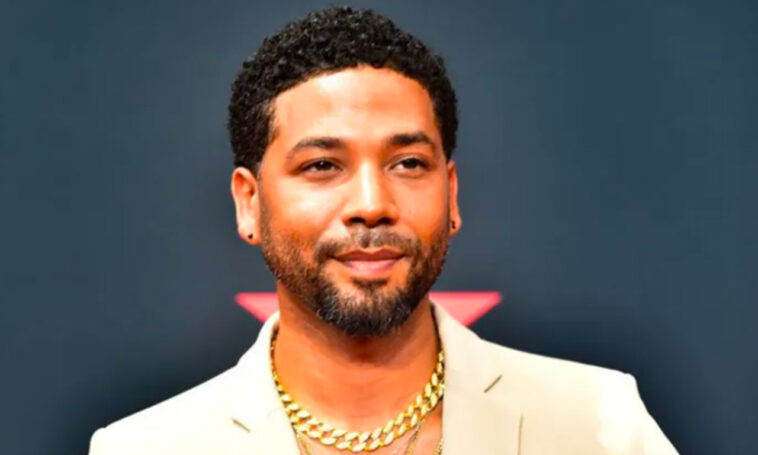In a recent decision, the Illinois Supreme Court overturned Jussie Smollett’s conviction related to a staged hate crime he falsely reported in 2019. The actor, known for his role on “Empire,” had been convicted of five counts of disorderly conduct in 2021 for making a false report of a hate crime. The court ruled that Smollett could not be prosecuted again after the original charges were dropped in 2019 under an agreement with the state. The ruling has sparked debate and renewed discussion on the case, which gained national attention for its complexity and controversy.
In a surprising turn of events, the Illinois Supreme Court has overturned the conviction of actor Jussie Smollett in connection to a fake hate crime he staged in 2019. This decision, issued on Thursday, has reignited a highly publicized debate about the legal complexities and the broader implications of the case.
Jussie Smollett, best known for his role in the TV show Empire, was originally charged with falsely reporting a hate crime after claiming in January 2019 that he was attacked by two men in Chicago. According to Smollett’s account, the attackers yelled racist and homophobic slurs, tied a rope around his neck, and made reference to the slogan “This is MAGA country,” a reference to former President Donald Trump’s political campaign. However, after an investigation, authorities discovered that Smollett had orchestrated the attack with the help of two brothers he allegedly hired to stage the assault.
“We are aware that this case has generated significant public interest and that many people were dissatisfied with the resolution of the original case and believed it to be unjust. Nevertheless, what would be more unjust than the resolution of any one criminal case would be a holding from this court that the State was not bound to honor agreements upon which people have detrimentally relied,” the court stated in its opinion.
Despite the serious nature of the allegations, the case took an unexpected turn in 2019 when Cook County State Attorney Kimberly Foxx’s office decided to drop all charges against Smollett, citing an agreement where he forfeited a $10,000 bond and agreed to complete community service. This decision was met with significant public outcry, with critics claiming that Smollett had essentially received special treatment. The dismissal of charges led then-Chicago Mayor Rahm Emanuel to condemn the action, calling it a “whitewash of justice.”
The legal battle didn’t end there. In 2020, a special prosecutor, Dan Webb, was appointed to investigate the handling of the case. A grand jury later indicted Smollett on new charges related to his false claims of a hate crime. He was eventually convicted in 2021 on five counts of disorderly conduct for making a false police report. However, Smollett maintained that the incident had been a real hate crime and argued that he should not face prosecution again after the 2019 agreement.
The Illinois Supreme Court ruled on Thursday that Smollett’s second prosecution violated the principle of double jeopardy, which protects individuals from being charged twice for the same offense. According to the court’s ruling, the original charges were dropped under an agreement that Smollett had fulfilled, making it unconstitutional for him to be prosecuted a second time for the same incident. The court emphasized that allowing a second prosecution would set a dangerous precedent where agreements made in legal proceedings could be disregarded.
This ruling has further polarized opinions surrounding the case. Supporters of Smollett argue that the original charges were unfairly revived and that he should not face additional legal penalties after the resolution in 2019. On the other hand, critics argue that Smollett’s actions undermined trust in real hate crime cases and that the overturning of his conviction sends a dangerous message about the accountability of individuals who manipulate the justice system.
Smollett has continued to maintain his innocence, claiming that he was indeed the victim of a hate crime, despite the evidence presented in the investigation. The case has drawn attention to the complexities of the justice system, especially in cases involving public figures and high-profile incidents. While Smollett’s legal team celebrates the recent decision, many others remain dissatisfied with the outcome.
The decision of the Illinois Supreme Court marks the end of Smollett’s legal saga for now, but it has left a lasting impact on public discussions about justice, accountability, and the consequences of false reports. As the legal community absorbs the implications of this ruling, it remains to be seen whether Smollett will continue to face any further repercussions related to the hoax.
For now, Smollett’s conviction has been overturned, and the actor has expressed a desire to move forward with his life and career. However, the controversy surrounding the case will likely continue to resonate in both legal circles and public discourse for some time.




Join the Community and Be a Part of the Conversation
You must be logged in or registered to post a comment.